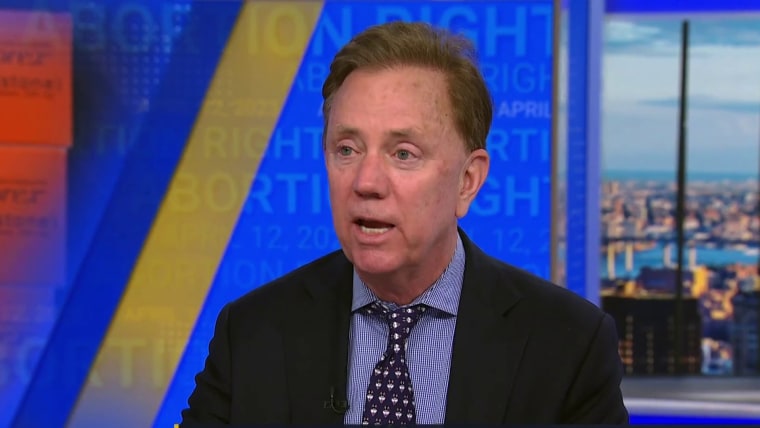[ad_1]
HARTFORD, Conn. — Connecticut’s most wide-ranging gun control measure since the 2013 law enacted after the Sandy Hook Elementary School shooting takes effect Sunday, with proponents vowing to pursue more gun legislation despite legal challenges happening across the country.
The new law, signed by Democratic Gov. Ned Lamont in June, bans the open carrying of firearms and prohibits the sale of more than three handguns within 30 days to any one person, with some exceptions for instructors and others.
“We will not take a break and we cannot stop now, and we will continue to pass life-saving laws until we end gun violence in Connecticut. Our lives depend on it,” said Jeremy Stein, executive director of Connecticut Against Gun Violence.Immediately after it was passed, the law was challenged in court by gun rights supporters. Connecticut’s landmark 2013 gun law, passed in response to the 2012 elementary school shooting in Newtown that claimed 26 lives, is also being contested in court.
Besides Connecticut, which has some of the strictest gun laws in the country, other politically liberal-leaning states including California, Washington, Colorado and Maryland also have passed gun laws this year that face legal challenges. They come in the wake of the U.S. Supreme Court last year expanding gun rights.
California Gov. Gavin Newsom last week signed nearly two dozen gun control measures, including laws banning firearms being carried in most public places while doubling taxes on guns and ammunition sold in the state. He acknowledged some might not survive a legal challenge. Last week, a federal judge struck down a California law banning guns with detachable magazines that carry more than 10 rounds.
“We feel very strongly that these bills meet the (new standard), and they were drafted accordingly,” Newsom said. “But I’m not naive about the recklessness of the federal courts and the ideological agenda.”
About 150 gun rights activists held a rally outside the state Capitol on Saturday, despite the rainy and raw weather, to mark the last day that carrying a visible firearm was legal in Connecticut. But they remain hopeful the law will eventually be overturned in court, arguing it’s an infringement on Second Amendment rights and unnecessary.
“It is not common in Connecticut to go the grocery store and see somebody with an exposed firearm. Does it happen on rare occasions? Sure, but it is not a problem in our state,” Holly Sullivan, president of the Connecticut Citizens Defense League, told the Waterbury Republican-American. She said there were already state laws on the books that address people illegally carrying a weapon in public or abusing the open carry law.
The new law also increases bail and toughens probation and parole for what officials called a narrow group of people with repeated serious gun offenses; expands the state’s current assault weapons ban; stiffens penalties for possession of large-capacity magazines; expands safe-storage rules to include more settings; and adds some domestic violence crimes to the list of disqualifications for having a gun.
Republican legislative leaders, who represent the minority party in the state General Assembly, accused Democrats of bragging about how safe Connecticut is because of the gun laws when there have been carjackings, serious property crimes and other acts of violence. House Minority Leader Vincent Candelora, a Republican from North Branford, said claims Connecticut is one of the safest states are a “slap in the face” to residents.
“Enough with the news conferences — Democrats should step away from the lectern and tap into what’s happening in their districts,” he said in a statement.
State Senate President Pro Tempore Martin Looney, a Democrat from New Haven, called the legislation a “very significant initiative” but stressed “the battle is not over.”
Connecticut is vulnerable to states with looser gun laws, Looney said. He wants to pursue further limits on monthly gun purchases and require microlabeling or ammunition microstamping to help law enforcement trace bullet casings to specific firearms makes and modes.
Lamont, who proposed the newly enacted law, said he is interested in working with fellow governors in the Northeast to draft similar laws, given how the technology is changing so fast and Connecticut “can only do so much within our small state and within our borders.”
[ad_2]
Source link

